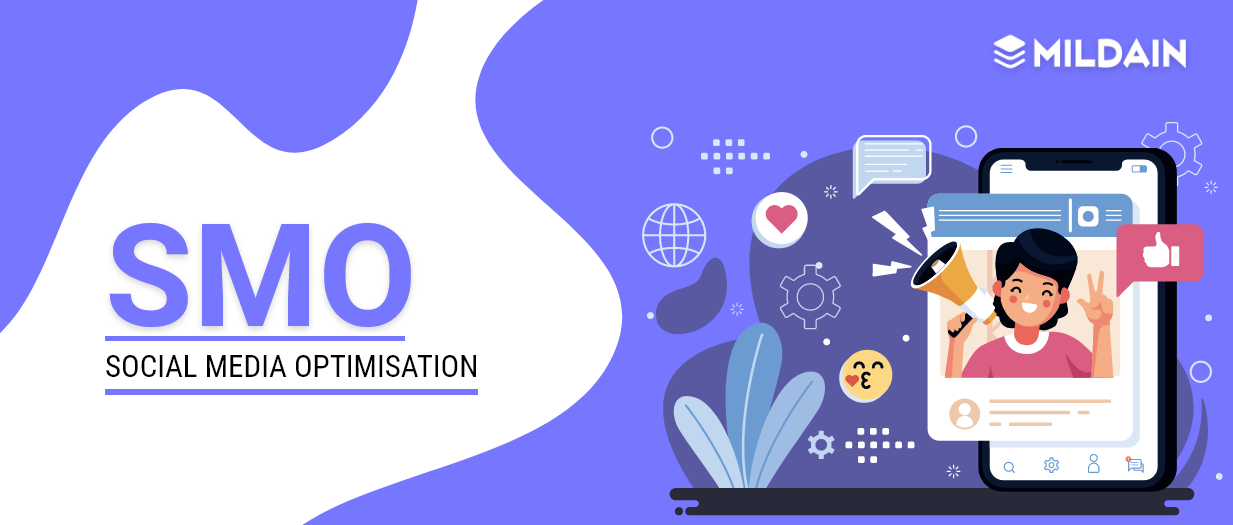
What is Social Media Optimisation (SMO)?
Date : 2020-05-08Views : 56
Social media optimization (SMO) is the set of strategies to generate publicity to increase the awareness of a product, service brand or event. Types of social media involved include RSS feeds, social news and bookmarking sites, as well as social networking sites, such as Facebook, Instagram,Twitter, video sharing websites and blogging sites. SMO is similar to search engine optimization, in that the goal is to generate web traffic and increase awareness for a website. In general, social media optimization refers to optimizing a website and its content to encourage more users to use and share links to the website across social media and networking sites. SMO also refers to software tools that automate this process, or to website experts who undertake this process for clients.
Search Engine Optimization (SEO) for websites has been honed into a fine art with entire companies devoting considerable effort to defining best practices and touting the value of SEO for raising a site's performance on organic search listings. While I believe in the power of SEO, there is a new offering we have started providing to clients which we call Social Media Optimization (SMO). The concept behind SMO is simple: implement changes to optimize a site so that it is more easily linked to, more highly visible in social media searches on custom search engines, and more frequently included in relevant posts on blogs, podcasts and vlogs.
Obviously, SMO has to do with social networks and their growing importance to business. This aspect of optimization deals with enhancing your company’s presence and online reputation through interactive communities—not just Facebook and Twitter, but also blogs, forums, and anywhere your business is mentioned or linked to socially.
Working with SMO can help you strengthen your brand and boost visibility, as well as generate leads and increase sales. Optimizing your social media builds both familiarity with and trust for your business, because consumers will see you not only mentioned, but recommended by others.
Google Hummingbird: Why You Need SMO
In the last month or so, Google quietly launched a major overhaul of their search algorithm. Dubbed Hummingbird because of its speed and precision, the new algorithm changes the way Google interprets search terms—and changes the weight of some factors that drive search rankings.
Social shares are more important in calculating rankings now, and they’re apt to contribute even more in the near future. The Hummingbird algorithm values quality content that is relevant, authoritative, and shareable. So the more your content has been shared across social media, the higher its perceived quality—and the better you’ll rank on Google.Here are some rules we use to help guide our thinking with conducting an SMO for a client's website:
- Increase your linkability – This is the first and most important priority for websites. Many sites are "static" – meaning they are rarely updated and used simply for a storefront. To optimize a site for social media, we need to increase the linkability of the content. Adding a blog is a great step, however there are many other ways such as creating white papers and thought pieces, or even simply aggregating content that exists elsewhere into a useful format.
- Make tagging and bookmarking easy – Adding content features like quick buttons are one way to make the process of tagging pages easier, but we go beyond this, making sure pages include a list of relevant tags, suggested notes for a link (which come up automatically when you go to tag a site), and making sure to tag our pages first on popular social bookmarking sites (including more than just the homepage).
- Reward inbound links – Often used as a barometer for success of a blog (as well as a website), inbound links are paramount to rising in search results and overall rankings. To encourage more of them, we need to make it easy and provide clear rewards. From using Permalinks to recreating Similarly, listing recent linking blogs on your site provides the reward of visibility for those who link to you
- Help your content travel – Unlike much of SEO, SMO is not just about making changes to a site. When you have content that can be portable (such as PDFs, video files and audio files), submitting them to relevant sites will help your content travel further, and ultimately drive links back to your site.
- Encourage the mashup – In a world of co-creation, it pays to be more open about letting others use your content (within reason). YouTube's idea of providing code to cut and paste so you can imbed videos from their site has fueled their growth. Syndicating your content through RSS also makes it easy for others to create mashups that can drive traffic or augment your content.
Engage the right audience for your business. Hire Professionals for SMO
About the author

Bhaskar
Author bags over a decade of experience in writing on different verticals of technology. He is working as a Content Writer in Mildain Trainings’ Digital Marketing Team. His quick understanding of technologies and skill in describing complex tech terms in simple words is remarkable.




